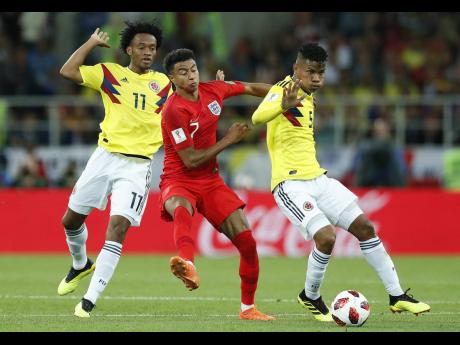CFU boss backs biennial World Cup plan
With FIFA’s plan for a biennial World Cup coming under increased scrutiny, Caribbean Football Union (CFU) President Randy Harris says that the region would support the project in a bid for consistent, high-quality playing opportunities for Caribbean teams.
His comments come as FIFA, on Thursday, unveiled detailed plans to reshape the playing of the Men’s World Cup to every two years despite opposition from the European (UEFA) and South American (CONMEBOL) federations, as well as the European Clubs Association.
The considerations include replacing the current international window system with a single block of fewer qualifying games, international tournaments being held in June each year, as well as players getting a mandatory 25-day vacation in July before rejoining their clubs for their respective domestic seasons.
Harris says that the CFU would back such a proposal as there is a lack of competitive games to match the level that a qualifying cycle brings.
COMPETITIVE GAMES
“In our region, we are not playing competitive football at the level of World Cup qualifying and trying to make it to the Finals. We in the Caribbean, would support a World Cup every two years. World Cup would bring an appeal to the players, officials and the general public that nothing else does,” Harris told The Sunday Gleaner.
Jamaica Football Federation President Michael Ricketts echoed similar sentiments earlier this year when FIFA approved a proposal for a feasibility study to be done on the matter at the 71st FIFA Congress in May.
“We just need to manage our time. I honestly think that it could work and we need to – just from a national standpoint, play more football,” Ricketts stated then.
But there has been backlash regarding the scheduling and the integrity of the game itself, following the detailed proposal, which if approved, would come into effect after the 2026 World Cup.
In a statement, yesterday CONMEBOL,which had raised the idea three years ago, has done an about-face and said that further examination of the issue showed that it was “highly unviable”.
CALENDAR OVERLOAD
“A World cup every two years would represent an overload that is practically impossible to manage in the international competition calendar. The situation would be extremely difficult with the proposed change,” the statement read. “Therefore under the current conditions, it ratifies its support for the current World Cup model with its terms and classification mechanisms, considering it consistent, with the spirit that animated those who conceived and found this competition.”
But Harris says a medium can be reached.
“The truth is if we have it biennially there is more activity, especially in a region such as ours. I think people are a bit worried that the World Cup would take away from the confederations tournaments at this time. But I feel that a system can be worked out where we can all live in some harmony to make sure that the global game gets the exposure that it needs,” Harris says.
Concacaf expanded the regional competitions since 2018 with the launch of the Concacaf Nations League as well as the expansion of the Gold Cup tournament (16-team field). They were done as part of the strategy to have a regular international schedule, especially for those nation which do not play enough games.
UEFA President Aleksander Ceferin has warned of a potential boycott from Europe should it be approved.
“We can decide not to play in it. As far as I know, the South Americans are on the same page. So good luck with a World Cup like that. I think it will never happen as it is so much against the basic principles of football,” he told British newspaper The Times on Thursday.
A decision could be reached in December although it would have to be ratified at the next FIFA congress in 2022. If approved, the proposal would take effect after the 2026 cycle and would likely move to an odd number of year’s to avoid clashing with the 2028 and 2032 Olympic games.

